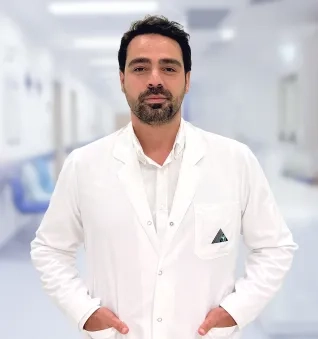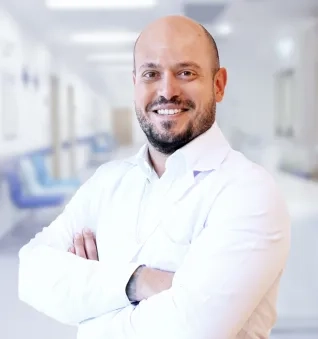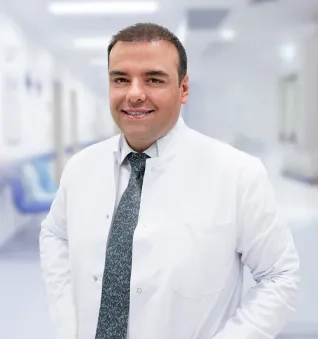Alo Yeditepe
Alo Yeditepe
A New Era in Obesity Surgery
Obesity Degree Was Decreased in Suitability Criteria for Surgery
“The treatment needed by people with obesity should be comprehensively evaluated and determined by an experienced team. Which patient needs surgical or endoscopic treatment and which patient needs medical treatment should be determined with a multidisciplinary approach. In this context, the surgical decision must be taken in well-equipped centers with experienced teams in the field of obesity and metabolic surgery.”
"The Fight Against Obesity Cannot Be Pursued with Short and Temporary Methods"
Stating, “People who have weight problems actually know that this is a problem and they try different methods (diet and exercise, etc.) of their own choice to overcome this problem. These trials have short-term and temporary effects.”, Surgeon continued his words as follows:
“When the desired effect is not achieved, it may fail as a result of situations such as hopelessness and ignorance. Short and temporary methods are not preferred in the fight against obesity. It is necessary to make long-term plans with lifestyle changes, proper nutrition, and exercise. We can define clinical obesity as the situations in which individuals cannot succeed despite many attempts, that is, the situations in which individuals cannot overcome obesity on their own. In cases where individuals who have struggled with obesity for many years cannot achieve any success and cannot overcome this situation on their own, we need to support patients.”
"Roadmap in Obesity Treatment Should Be Redrawn"
Pointing out that obesity centers should more accessible, and after individuals with obesity apply to these centers, a road map should be drawn after a professional evaluation and continuous follow-up should be done, Surgeon said, “This situation, which we define as "clinical obesity disease", should be evaluated very well, surgical and medical approaches should be determined, and as a result, the necessity and effectiveness of surgery should be explained to the people who are decided to have surgery. In clinical obesity disease, I can say that the most effective method in people with 2nd degree or higher obesity is surgery.”
A New Era Has Begun in Obesity Surgery
Pointing out that the International Federation for the Surgery of Obesity and Metabolic Disorders (IFSO) and the American Society for Metabolic and Bariatric Surgery (ASMBS) have entered a new era in the field of obesity with the joint new guideline published in December 2022, Surgeon made the following statements about the process:
“We first evaluate the degree of obesity in our patients who come for obesity treatment. Until last year, we were able to indicate surgery in patients with 3rd-degree obesity, that is, with a body mass index above 40. However, in the new guideline published as of December 2022, surgery is recommended for people with 2nd-degree obesity, that is, with a body mass index above 35, regardless of the additional disease status. However, surgeries are also recommended for first-degree obesity patients with the additional disease, that is, with a body mass index between 30-35. With the announcement of this guideline, a new era has begun in obesity surgery.”
"Successful Results from Surgical Treatment Are Also Effective In This Decision"
Stating that several points were effective in taking such a decision and including it in the guideline, Surgeon said, “The successful results obtained from gastric bypass, which has been applied for about 60-70 years in obesity surgery, and sleeve gastrectomy surgery, which has been applied for the last 20 years, are important. Since surgery has become an effective and safe method in the prevention of obesity, which has become an epidemic in the world, I think that guidelines have been formed by reducing the degree of obesity. In addition, its effect on the regression of chronic diseases is also important. As an example, some studies indicate that diabetes regresses by over 90 percent after obesity surgery in people with obesity, especially with non-familial diabetes, and even the use of medications is completely stopped.”
Lifespan Extends When We Prevent Obesity
Surgeon said, “It has been shown that the average life expectancy of people with obesity disease is 10 years less when compared to individuals with normal weight. In this sense, when we prevent obesity, it is possible to say that both life expectancy and obesity-related chronic diseases, especially blood pressure, diabetes, and heart disease, regress and quality of life increases.”
Patient Compliance Increases Success Rate
Yeditepe University Kozyatağı Hospital General Surgery Specialist, Surgeon, who emphasized that the multidisciplinary approach is very important in the success of obesity surgery, concluded his speech as follows: “The patient should be evaluated well before the surgery and followed up well after the surgery. It is extremely important for patients to be psychologically ready for these processes, to adopt a new lifestyle after surgery, and to comply with follow-up programs and nutritional recommendations. As the necessity of an experienced team, patient follow-up in the postoperative period also plays an important role. We share all these processes with the patient before the surgery. The more the patient adapts in the postoperative period, the higher the success rate, and it becomes permanent for many years. In order to ensure this permanence, our patients are followed up closely for 1 year after the surgery, and then annual follow-ups are made and this follow-up period continues for up to 5 years. We carry out all processes covering the preoperative, operative, and postoperative periods by working as a team with an experienced and coordinated team.”
This content was prepared by Yeditepe University Hospitals Medical Editorial Board.
”
See Also
- What is Laparoscopic Reflux Surgery and How is it Performed?
- Revision Surgery in Obesity Surgeons
- What is Gallbladder Surgery?
- Patched Solution for Umbilical Hernia
- Swallowable Gastric Balloon
- What Are the Symptoms of Gallbladder Stones? How Is It Treated?
- 3 Major Developments Shaping Treatment in Colon Cancer
- Can Weight Loss Despite Not Dieting Be a Sign of Cancer?
- He Came to Turkey to Get Rid of the Colostomy Bag
- Emotional Stress May Affect Risk of Recurrence in Breast Cancer
- Although Her Fears Prevented Her from Going to the Hospital, She Managed to Beat Breast Cancer at the Age of 70
- Breast Cancer Screening Applications Decreased by 10% Before the Pandemic
- Facts About Breast Cancer
- Liver Cancer (Tumor) and Treatment
- Gallbladder Stones
- What Is Appendicitis?
- Questions About Gastroenterology Surgery
- What are the Types of Obesity Surgeries?
- Questions About Obesity Surgery
- Overweight
- Are Obesity Surgeries Risky?
Alo Yeditepe







